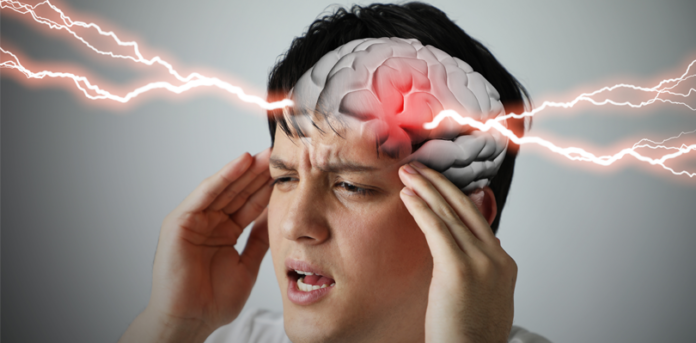A concussion is a mild brain injury, one of the most common forms of traumatic brain injury affecting millions worldwide. A concussion can happen to anyone, anywhere, at any time, and it can significantly impact an individual’s daily life. In this post, we will be delving into the various aspects of a concussion, including its symptoms, treatments, and much more to know.
Furthermore, we will explore the signs to look out for, the steps to take when seeking medical help, and the different approaches to managing the condition. Whether you’re an athlete, a parent, or simply interested in learning more about concussions, this post is for you. So, let’s dive in and discover all you need to know about this common yet often misunderstood injury.
What Is Concussion
A concussion is a form of mild traumatic brain injury (TBI) that occurs when the brain is subjected to sudden and forceful movement, such as a blow or jolt to the head. It is a common injury that can happen to anyone, anywhere, and at any time, whether during sports activities, accidents, or falls. A concussion can cause a range of symptoms, including headache, dizziness, confusion, and memory loss. Although most people recover from a concussion within a few days to a few weeks, some may experience long-term effects. It is important to seek medical attention if you suspect a concussion to ensure proper diagnosis and treatment.
Causes Of Concussion

Here are some common causes of concussions:
Sports Injuries
Concussions are commonly associated with contact sports such as football, hockey, soccer, and boxing, where players are at a higher risk of receiving blows to the head.
Falls
Falls are a common cause of concussions, especially among children and older adults. Falling from a height or slipping on a wet surface can result in a jolt or blow to the head.
Car Accidents
Car accidents are a leading cause of concussions. Even a minor fender bender can result in a sudden jolt to the head, causing the brain to bounce around inside the skull.
Assault
A violent blow to the head, such as a punch, kick, or hit with an object, can cause a concussion. This is often seen in cases of physical assault or domestic violence.
Explosions
Military personnel and civilians who are exposed to explosions, such as in a bomb blast, are at risk of experiencing a concussion due to the sudden pressure wave.
Shaken Baby Syndrome
Infants and young children are at risk of experiencing a concussion if they are shaken violently, which can cause the brain to move inside the skull and result in brain damage.
Treatments Of Concussion
Here are a few common treatments for concussion:
Rest
Rest is the most important aspect of concussion treatment. It is recommended that individuals with a concussion avoid any physical or mental activity that may exacerbate their symptoms. This includes avoiding screens, loud noises, bright lights, and physical activity.
Pain Management
Over-the-counter pain relievers, such as acetaminophen, may be used to manage headaches and other pain associated with concussions. However, it is important to avoid aspirin and nonsteroidal anti-inflammatory drugs (NSAIDs) as they can increase the risk of bleeding.
Cognitive And Physical Therapy
In some cases, cognitive and physical therapy may be recommended to help individuals recover from a concussion. These therapies aim to improve cognitive function, balance, and coordination.
Psychological Support
Concussions can have a significant impact on an individual’s mental health. Therefore, psychological support, such as counseling or therapy, may be recommended to help individuals cope with the emotional effects of the injury.
Gradual Return To Activity
As symptoms improve, a gradual return to activity may be recommended. This may include a step-by-step process of returning to school, work, and physical activity, under the guidance of a healthcare professional. It is important to avoid returning to activity too quickly, as it can delay recovery and increase the risk of a second concussion.
Symptoms Of Concussion
Here are some common symptoms of concussions. It is important to note that any activity that causes a sudden jolt or impact on the head or body can result in a concussion, and individuals should take steps to prevent head injuries whenever possible.
Headache
A headache is one of the most common symptoms of concussion. It may be mild to severe and may last for several days.
Dizziness And Balance Problems
Concussions can cause dizziness, vertigo, and balance problems. An individual may feel unsteady on their feet, have difficulty walking, or experience a sensation of spinning.
Cognitive Impairment
A concussion can cause a range of cognitive symptoms, including confusion, memory loss, and difficulty concentrating. An individual may have trouble remembering recent events, following a conversation, or completing tasks.
Sensory Disturbances
A concussion can cause sensory disturbances, such as sensitivity to light and noise, blurred vision, and ringing in the ears.
Emotional And Behavioral Changes
Concussions can affect an individual’s emotional and behavioral state. They may experience mood swings, irritability, anxiety, depression, or changes in sleep patterns. It is important to note that some symptoms may not appear until days or weeks after the injury, and symptoms can vary widely from person to person.
Doctor’s Opinion About Concussion
Doctors view concussion as a serious medical condition that requires proper diagnosis and treatment. They recommend seeking medical attention immediately after a head injury or suspected concussion, especially if the individual experiences symptoms such as headache, dizziness, or cognitive impairment. A doctor will typically conduct a physical examination, review the individual’s medical history, and may order imaging tests, such as a CT scan or MRI, to assess the extent of the injury.
Doctors stress the importance of rest and avoiding physical and mental activity that could exacerbate symptoms. They may also recommend pain management, cognitive and physical therapy, and psychological support to aid recovery. Additionally, doctors advise individuals to gradually return to activity under medical supervision to avoid re-injury.
Doctors also emphasize the potential long-term effects of concussion, including cognitive impairment, mood disorders, and chronic headaches. Therefore, it is crucial to follow up with medical care and monitor symptoms after a concussions to ensure proper recovery and minimize the risk of complications.
FAQs
How long does it take to recover from a concussion?
The recovery time from a concussion varies from person to person and depends on the severity of the injury. While most people recover within a few days to a few weeks, others may experience symptoms for months or even years. It is important to seek medical attention and follow the guidance of a healthcare professional to ensure proper recovery.
Can you have a concussion without losing consciousness?
Yes, it is possible to have a concussions without losing consciousness. Loss of consciousness occurs in less than 10% of concussions cases, and many people may not realize they have a concussion until they experience symptoms later on.
Can a second concussion be more dangerous than the first?
Yes, a second concussion can be more dangerous than the first, and it can take less force to cause a subsequent injury. This is known as Second Impact Syndrome and can cause severe brain damage or even be fatal. It is important to avoid activities that could lead to another head injury until cleared by a healthcare professional.

